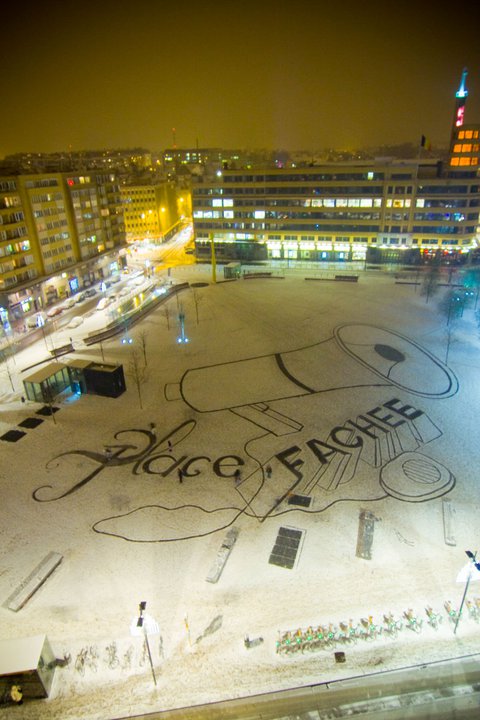 Last week I was invited to speak on a panel at the European Public Affairs Action Day. The topic of discussion was key trends in EU lobbying. As the introductory speeches began, I took a few minutes to gather my thoughts and I tried to think of some key insights and messages that would at least get a discussion going.
Last week I was invited to speak on a panel at the European Public Affairs Action Day. The topic of discussion was key trends in EU lobbying. As the introductory speeches began, I took a few minutes to gather my thoughts and I tried to think of some key insights and messages that would at least get a discussion going.
The setting was a conventional hotel venue populated with people in ties. So this was definitely not TEDxBrussels, but the turnout was good considering Brussels’ then arctic conditions.
I started by saying – rather dramatically – that we were living through a massive Black Swan epidemic (looked around to see if the word meant anything to the audience). In other words, we lived through a series of highly improbable events which had a significance impact – from the financial crisis to the Arab Spring and the never ending Eurozone crisis.
Recently, we witnessed Wikipedia shutting down for an entire day out of protest against SOPA. The effect: a new form of lobbying was unleashed and SOPA was dropped the following day by one of its main sponsors. This is just the latest in a series of events demonstrating the growing power of NGOs. A power which developed out of their innovative use of new technologies to campaign and perhaps underlying societal trends.
The key trend I want to emphasise is how incredibly slow the ‘Brussels Bubble’ has been at recognizing and adapting to these changes. In my speech, I stated that around 90% of organisations in Brussels still campaign as if nothing had changed in the past 50 years (I can’t claim to have the hard data supporting this figure but no one challenged it).
In a less forward statement, I told the audience that the fear of change, lack of innovative spirit and courage deficit was shocking and that our community needed to change attitude and mindset. I also suggested that corporate members were beginning to put increasing pressure on associations to see a change in approach – and not just to get ‘more for less’ as some suggested. They want to see different outcomes and different campaigns, they wanted to see value for money and want to see something to change.
Many Brussels associations have embraced the mindset of the Brussels Institutions and only see the limitations on what they can do. Thus they fear change even more than the institutions they are trying to influence. Paradoxically, the more they resist change, the more frustrated their member companies become and the more critical the situation becomes.
Alfons Westgeest, from Kellen, built on my 90% stat to launch into a weather analogy describing the Brussels frozen paradigm – which I must say I rather liked.
The discussion that followed touched on a range of different subjects and some sceptics said this was a naive view of things. I talked about how some industries, such pharmaceuticals, were experimenting with new approaches despite challenging legal constraints and a conservative past (see vaccinestoday.eu to see some of the work we did with them in action).
However, I was also reminded of how much Brussels needs more inspirational and ground breaking initiatives such as TEDxBrussels.eu or Solve for X, an initiative Google recently launched to solve some of the worlds seemingly insurmountable challenges (www.wesolveforx.com).
In the face of a cold wave, Brussels could do with a healthy dose of sunny optimism.
For communicators who want to see change in Brussels and in the EU, the starting point is to be willing to do things differently and prepared to take a risk. Once you are open to experimentation and innovation, the extraordinary tools and networks brought about by the internet can be incredible opportunities. If you want to find out how to do that, just drop us a tweet ![]()











